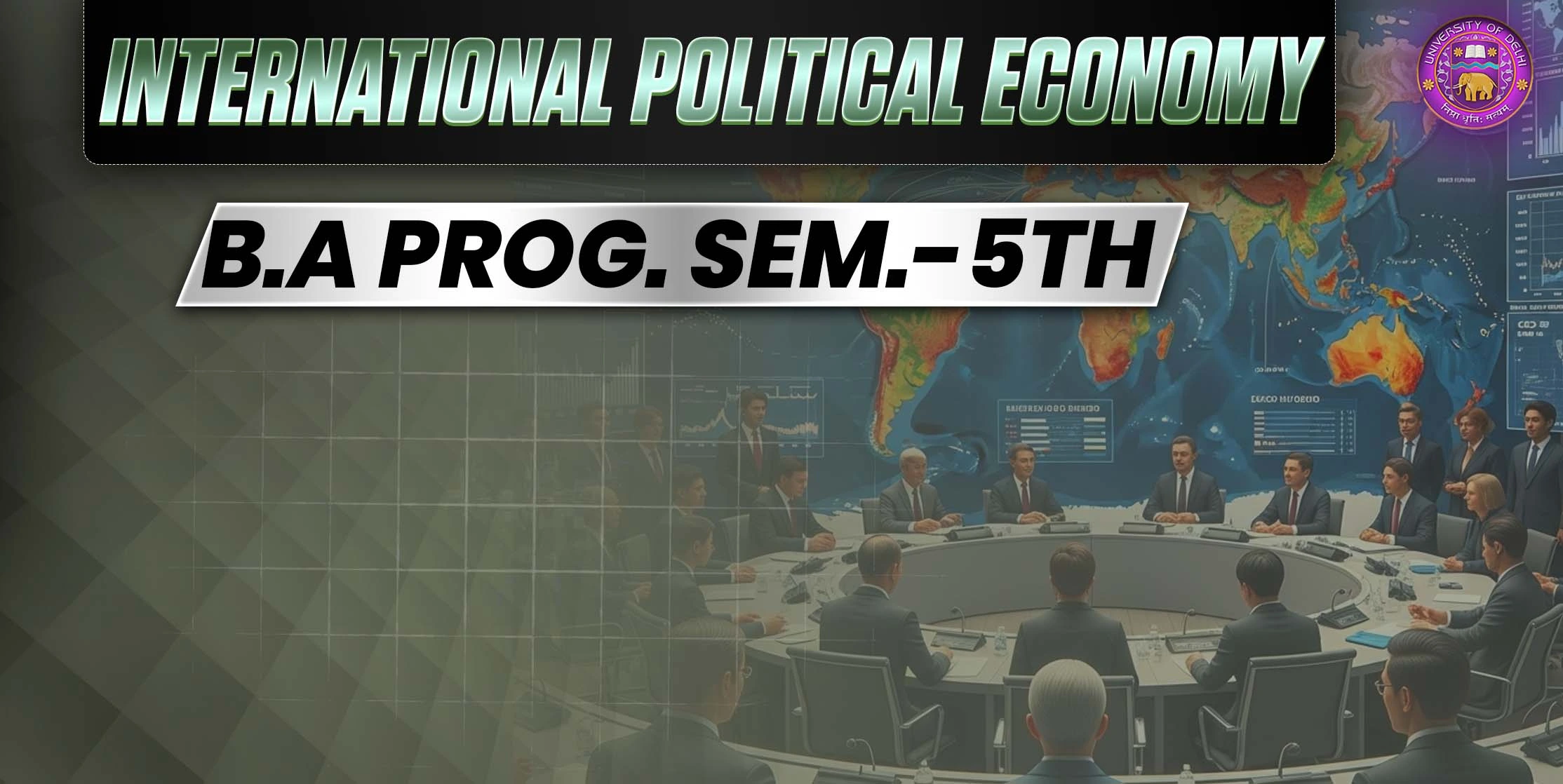
Get in Touch
We will get back to you within 24 hours.
Welcome to MVS Blog

Answer - Introduction
International Political Economy (IPE) studies the global relationship between politics and economics. It emerged in the late 19th and early 20th centuries. IPE aims to understand how wealth, power, and resources are distributed worldwide. It also looks at their effects on stability, growth, and international cooperation, shaping global affairs.
Definition of International Political Economy
International Political Economy is a multi-dimensional study that analyzes the relationship between global politics and economics. It includes the roles of states, international organizations, multinational companies, and non-governmental organizations.
Origin and Development of International Political Economy:
Due to the impact of changes in the global political and economic landscape, International Political Economy (IPE) started as an independent and important field of study. Initially, it was considered a subfield of International Relations (IR), but over time, both its scope and importance grew.
1. Early Ideas and Exchange –
Adam Smith and David Ricardo played a key role in shaping IPE. Smith's “Invisible Hand” and Ricardo's “Comparative Advantage” theory helped explain international trade and resource distribution. Their ideas laid the foundation for trade, investment, and global economic growth, which later developed into International Political Economy.
2.Impact of War and Keynesian Theory –
Between the First and Second World Wars, new ideas emerged in IPE. Economic nationalism and protectionist policies promoted trade and highlighted the need for government intervention to protect national interests. Keynesian theory emphasized fiscal policy, macroeconomic management, and government participation, helping achieve global economic stability and reconstruction.
3. Bretton Woods System and Rise of International Institutions –
After World War II, the Bretton Woods Conference (1944) created institutions like the World Bank (WB) and the International Monetary Fund (IMF). These ensured global economic cooperation and stability. During this time, Robert Keohane and Joseph Nye's liberal internationalism theories promoted cooperation within the international system, helping organize trade, financial systems, and foster stronger ties between countries.
4. Neo-Marxism and New Ideas –
In the 1970s and 1980s, theories like Neo-Marxism,
Dependency Theory, and World-System Analysis emerged, challenging traditional IPE views. Scholars like Susan Strange and Robert Cox focused on power relations and inequalities, offering a deeper understanding of the contradictions in the global political economy.
5.Present and Future of IPE –
In the modern era, the study of IPE covers topics from
traditional economic theories to global inequalities, environmental changes, and conflicts between global economic powers. The field of IPE is constantly evolving and provides important ideas and perspectives to understand global affairs.
Importance of International Political Economy:

1. Globalization –
By the late 20th century, globalization increased trade, financial flows, and information exchange rapidly. As a result, national borders became less important in “Economics and Politics”. This expanded economic relations between countries and made IPE's role more significant.
2. Increasing Influence of International Economic Institutions –
IPE helped understand the impact of global economic institutions like the International Monetary Fund (IMF), World Bank, WTO, and GATT (General Agreement on Tariffs and Trade). These institutions not only affected trade and investment but also played a key role in global development, solving debt issues, and addressing economic crises.
3. International Political and Economic Crises –
Global financial crises, like the crisis of 2008, oil crises, and other economic challenges, increased the need for IPE study. IPE helped understand how economic crises affect global politics and power structures, and how differences and cooperation between countries play a role in dealing with these crises.
4. Pandemics and Global Political-Economic Impact –
The COVID-19 pandemic showed that global crises affect not just health but also politics and the economy. For example, lockdowns disrupted global trade, but economic stimulus plans helped maintain stability, and international cooperation was needed for vaccine distribution. This shows how important IPE is for addressing global crises.
5. Future Global Stability and Cooperation –
The study of IPE helps promote global stability and cooperation. It focuses on understanding the relationships between politics and economics to find solutions to trade disputes, economic crises, and environmental challenges. International cooperation and institutions play an important role in managing these complex issues.
Conclusion
The study of International Political Economy helps understand global events and find solutions. It highlights the complex relationships between politics and economics, helping policymakers, scholars, and ordinary citizens make better decisions in our interconnected world. IPE is a crucial guide towards global stability, security, and prosperity.
0 Response